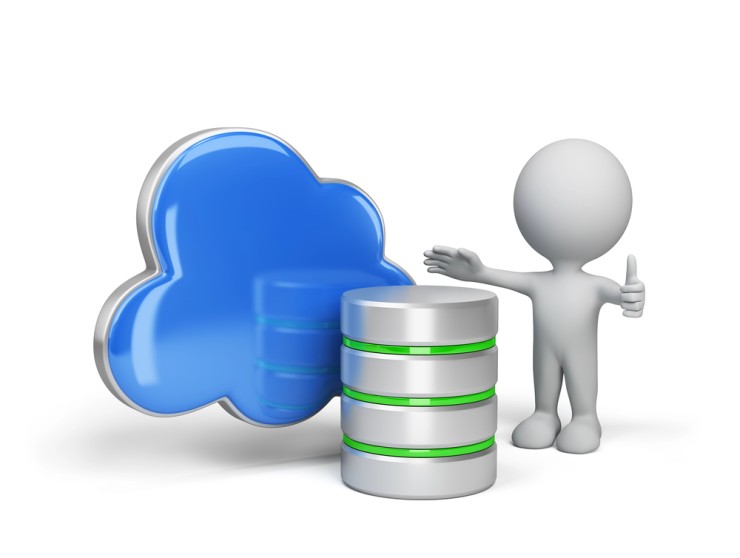
The ability to manage and analyze large volumes of data is essential for the competitiveness of any company. Database software and data platforms provide the necessary support to integrate, store, and process information quickly and securely.
At Dataprix, we have created our TOP 10 data software or platforms, a ranking that brings together the market’s most outstanding solutions in terms of performance, scalability, security, and integration. Discover the 10 tools that are transforming data management in companies.
What does a data platform offer?
Data is the new fuel of the digital economy. A proper platform not only facilitates the administration and analysis of information but also:
-
Eliminates silos: Unifies data from multiple sources and departments.
-
Drives innovation: Enables decision-making based on real-time analysis and artificial intelligence.
-
Optimizes resources: Automates administrative tasks and improves operational efficiency.
-
Ensures security: Strengthens the protection of critical data and complies with international regulations.
Choosing the most suitable data platform allows organizations to improve their processes, reduce operating costs, and boost competitiveness in a data-driven world.
The 10 best data platforms according to Dataprix
Our ranking is based on leading IT software analysis references such as Gartner and its Magic Quadrants, Forrester Research and its Forrester Wave, user review sites like G2 or Capterra, and also on our own experience.
Here’s the list of the 10 solutions we believe are leading the field of databases or platforms for data management and analysis:
1. Amazon RDS
Amazon RDS (Relational Database Service) is a managed cloud service that simplifies the setup, operation, and scaling of relational databases.
-
Advantages: Automated administrative tasks, high availability, and support for multiple database engines like MySQL, PostgreSQL, Oracle, and SQL Server.
2. Microsoft SQL Server
Microsoft SQL Server is one of the most established relational database management systems.
-
Advantages: Native integration with Windows environments, comprehensive administration tools (SQL Server Management Studio), and high security standards for critical transactions.
3. Oracle Database
Oracle Database is known for its robustness and performance, ideal for large enterprises.
-
Advantages: Scalable platform, support for various technologies and languages, and an architecture designed to handle complex workloads.
4. Google Cloud SQL
Google Cloud SQL is a fully managed service that simplifies the management of relational databases on Google Cloud.
-
Advantages: Supports MySQL, PostgreSQL, and SQL Server; high availability; and native integration with other Google Cloud services.
5. SAP HANA
SAP HANA is based on an in-memory architecture that enables real-time data processing.
-
Advantages: High-speed transaction execution, advanced analytics, and the ability to transform large data volumes into instant insights.
6. IBM DB2
IBM DB2 stands out for its robustness in critical environments and its ability to handle intensive workloads.
-
Advantages: Exceptional performance in multicloud environments, low transaction latency, and advanced real-time analytics features.
7. Databricks
Databricks integrates data engineering, data science, and machine learning into a single collaborative platform.
-
Advantages: Large-scale analytics, distributed processing, and intuitive tools that accelerate innovation and digital transformation.
8. Snowflake Cloud Data Platform
Snowflake offers a highly scalable and managed cloud data platform.
-
Advantages: Flexibility for managing data warehousing and data lakes, automatic scalability, and robust security adaptable to dynamic needs.
9. Cloudera Data Platform (CDP)
Cloudera Data Platform enables hybrid data management by combining on-premise and cloud environments.
-
Advantages: Unifies data integration, processing, and analytics, supporting machine learning and AI initiatives in mixed environments.
10. Huawei GaussDB
Huawei GaussDB is a distributed database solution designed for high-demand and intensive analytics environments.
-
Advantages: AI-powered engine, massive parallel processing (MPP) architecture, and the capacity to handle petabytes of data in real time.
Summary Table: Key Features of the TOP 10 Data Platform Software
| Software | Platform/Environment | Key Advantages |
|---|---|---|
| Amazon RDS | Cloud (AWS) | Automation, high availability, support for multiple engines (MySQL, PostgreSQL, Oracle, SQL Server). |
| Microsoft SQL Server | On-premise / Cloud (Windows) | Native Windows integration, powerful management tools, high security and transaction performance. |
| Oracle Database | On-premise / Cloud | Robust, scalable platform, multidisciplinary support, advanced integration, and security for complex workloads. |
| Google Cloud SQL | Cloud (Google Cloud) | Managed service, automatic scalability, high availability, and integration with native Google services. |
| SAP HANA | On-premise / Cloud (in-memory) | Real-time processing, ultra-fast analytics, optimization for BI and large data volumes. |
| IBM DB2 | On-premise / Multicloud | Exceptional performance, low transaction latency, advanced real-time analytics features. |
| Databricks | Cloud (collaborative platform) | Distributed processing, integration for data engineering and machine learning, big data workflow optimization. |
| Snowflake Cloud Data Platform | Cloud (managed) | Automatic scalability, high security, unification of data warehousing and data lakes, support for multiple workloads. |
| Cloudera Data Platform (CDP) | Hybrid (On-premise + Cloud) | Real-time data integration, support for AI and machine learning, adaptability to mixed and scalable environments. |
| Huawei GaussDB | Cloud / Distributed | AI-powered engine, MPP architecture, ability to handle petabytes of real-time data, high tolerance for intensive workloads. |
Conclusion
Selecting the right data platform is crucial for digital transformation and competitiveness in today’s business environment. Dataprix’s TOP 10 data platform software brings together the market’s most innovative and robust solutions, providing a solid foundation for managing large volumes of information, optimizing processes, and extracting valuable insights for decision-making. For more details on each of these tools and to assess which best fits your organization’s needs, check the complete ranking in the software directory.


